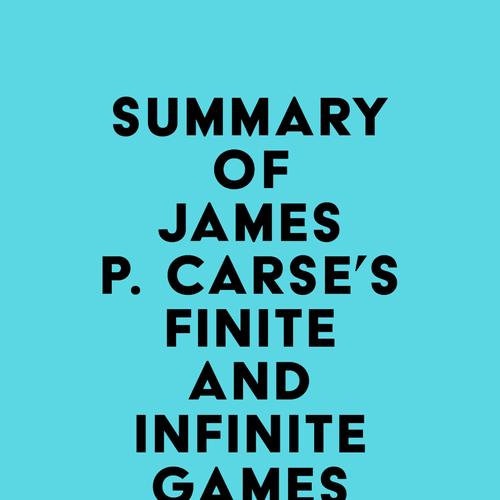Please note: This is a companion version & not the original book. Sample Book Insights:#1 It is a principle of all play, whether it be finite or infinite, that whoever plays, plays freely. Whoever must play, cannot play.#2 It is essential for a finite game to have a definitive beginning and end. Because players cannot select themselves for play, there is never a time when they cannot be removed from the game. The license never belongs to the licensed, and the commission never belongs to the officer.#3 To have boundaries means that the date, place, and membership of each finite game are externally defined. World time is marked by boundaries of contest, its people are finely classified as to their eligibilities.#4 An infinite game is identical to a finite game in that it is not bounded by time. However, infinite games are internally defined, while finite games are externally defined. The time of an infinite game is not world time, but time created within the play itself.
